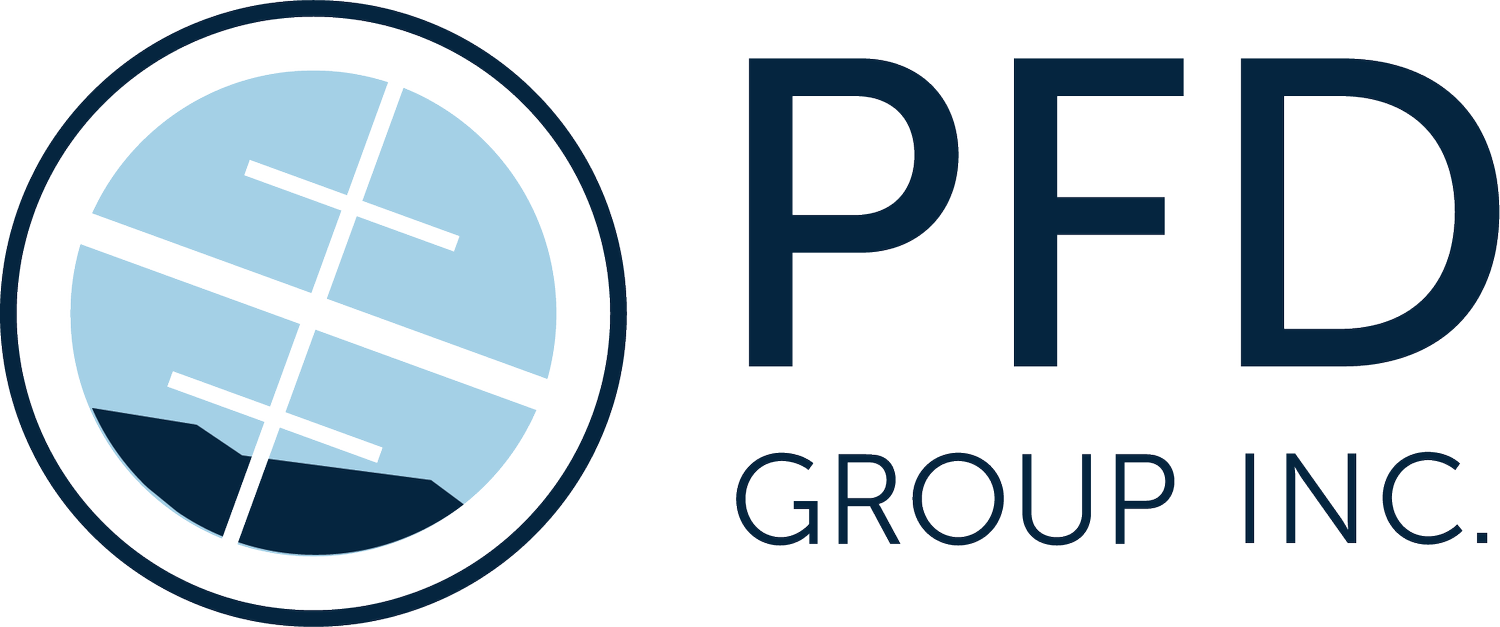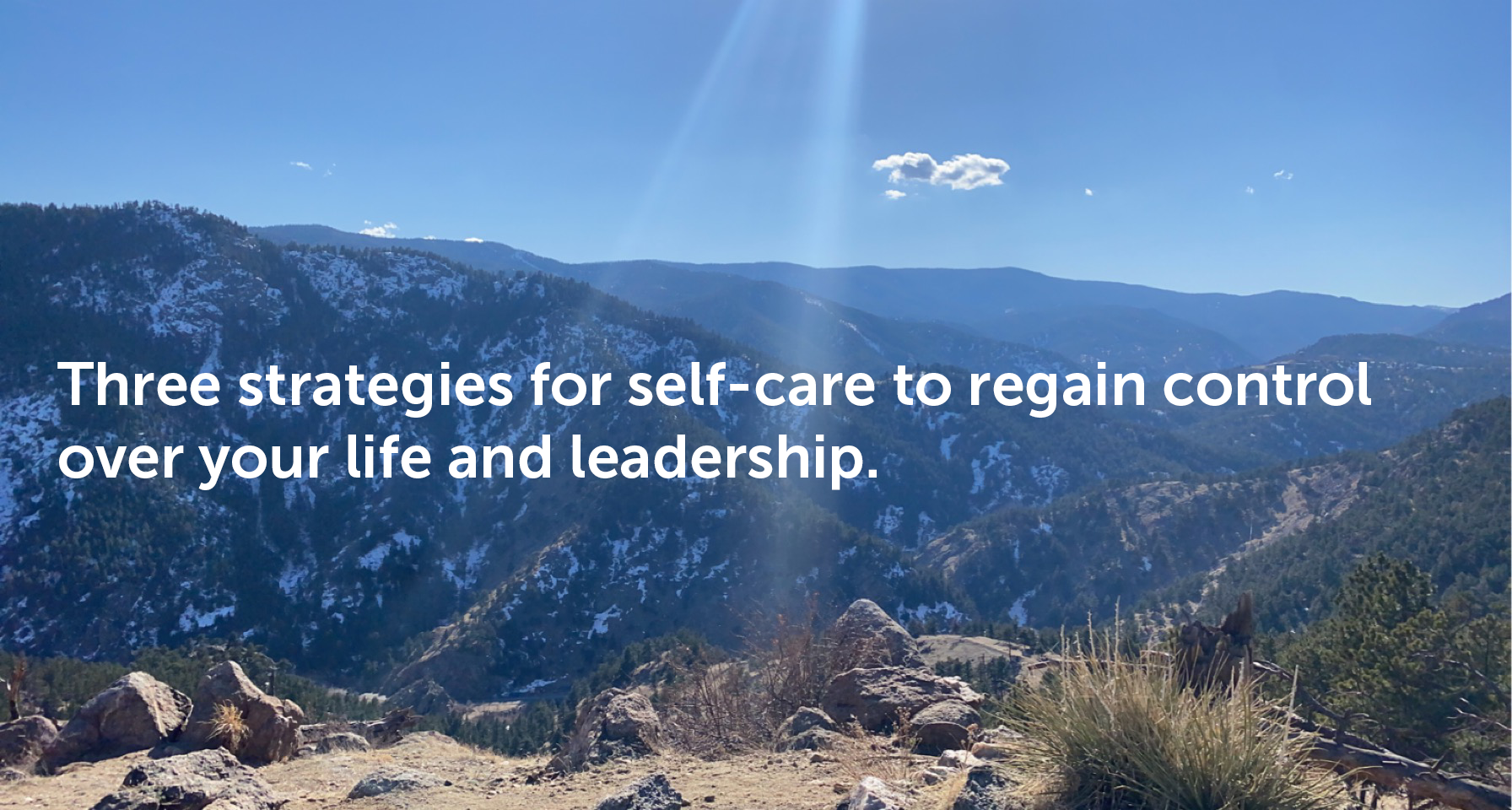We are living in an era where stress is the norm. At PFD, we recognize that there are numerous stressors in our own lives, including but not limited to political, social, and cultural upheaval, the continued economic hardship, as well as our own individual challenges. At PFD, we are also deeply saddened by the terrible acts of violence that have happened across the country, as well as in our own community in Boulder, Colorado. To add extra pressure, we know business leaders feel continual and immense pressure to lead well in order to be able take care of the people they employ, as well as the broader community. These stressors accumulate fast – in the past couple of months, 84% of adults said they experienced at least one emotion tied to prolonged stress – like anxiety (at 47%) sadness (at 44%) and anger (at 39%). Further, 67% of people in the United States said that the challenges they face are overwhelming. There’s no way around it – we are facing an inordinate number of stressors that affect our ability to lead and live stable, healthy lives.
As leaders, we are also prone to sacrificing our mental and emotional well-being to try to serve those around us. We do this because we know what’s at stake – we put in the extra hours and take the personal sacrifice to protect our team. While this quality is admirable, we are at risk for depleting our time and energy at unsustainable rates. We know that we cannot to pour from an empty cup, without taking time and refill it. In the past year, we have gone through so much, collectively and individually. This being said, there are definitive ways that we can refill and rejuvenate ourselves to be able to bring our best selves to our leadership positions.
Plan on sleeping
A third of your day should be dedicated to resting. It may sound simple, but we often neglect our sleep in favor of other activities; however, sleep is extraordinarily important. Consider these facts:
Good sleep can improve concentration and productivity
Sleep is important to regulating mental wellness. Mental health issues, like depression are strongly linked to poor sleep quality and sleeping disorders.
Sleep is important to regulating health. Poor sleep is linked to increased inflammation (like Chron’s disease), a greater risk of heart disease and stroke, and even a greater risk for type 2 diabetes.
Sleep is important to your emotional and social interactions –poor sleep can reduce your social skills and ability to recognize emotional expressions in others.
Try these strategies for setting yourself up to sleep well:
Go to sleep and get up at the same time every day – this will help set your body’s circadian rhythm.
Control your technology and light exposure. Using bright screens within 1-2 hours of your bedtime, can negatively impact your ability to fall asleep
Exercise during the day – even light exercise can improve sleep quality
Be mindful about what you eat and drink – caffeine, nicotine and alcohol, sugary foods, as well as eating big meals before bedtime can all disrupt sleep
Wind down at night. Creating a nighttime routine can help you calm down at night more effectively.
Create mindfulness around media consumption
We as people tend to have a desire to be informed. When we turn to the news or our social media feeds, we are tuning into the lives of the people we care about or admire, or the major events in our community and the world at large. This is not inherently a bad thing, but it doesn’t take an expert to understand that an excess of media is detrimental. For several years now, we have been coming to understand the adverse impacts of social media, in that it is deliberately designed to be addictive, with features like the ‘like’ button, consistent alerts, and the ‘infinite scroll’, and heavy social media use is linked to increased stress, anxiety, depression, isolation, and feelings of loneliness. Similarly, constant access to negative and alarmist news media can take a similar toll. When our bodies sense a threat, our brain activates our flight or fight response – even if the threat is being relayed to us through our televisions and news applications. Consuming news can cause our brains to release stress hormones, like cortisol and adrenaline, and prolonged exposure can lead to an increase in fatigue, anxiety, depression, and sleep loss.
Because we should be informed, but overconsumption can cause harm, we should employ strategies to moderate our exposure to media. These strategies could be:
Limit your time on news each day. Rather than having the news be background noise, take no more than 30 minutes each day to catch up with what has been happening in the media and on social media.
Create list of “purposes” around your different media outlets. When you define a purpose for each piece of media, limit your consumption of that media to that purpose. If your main goal for using Facebook is to catch up with close friends and family, edit your notification settings to just to see when they post, rather than aimlessly scrolling around the site. If your main goal for going to a news site is to get business-related news and economic forecasts, but you find yourself mindlessly frequenting the celebrity gossip columns, create the intention to change your consumption habits.
Acknowledge your emotions when consuming media. If you are feeling particularly pessimistic or angry one day, it might be a better strategy to avoid the news that day.
Subscribe to a reputable newsletter or podcast. Rather than flipping through different news channels and sites, a newsletter or podcast that summarizes the large news stories for that day inherently limits your time and contact.
Do something healthy after you watch the news. Because the news can be a stressor, following your news consumption with healthy action can reduce your stress and the adverse impacts of the news. These activities could be exercising, taking a walk, talking to a friend, or working on a hobby.
Schedule your routines
At PFD, we are proponents of routine. As leaders, we often face unpredictable situations that require creative action and solutions. Because these situations can be energy-depleting, we encourage you to create structure in your day to replenish your energy and mental wellness. Routines have been linked to better stress levels, sleep, health, and self-esteem.
Try these strategies to improve routine in your life:
Write out the specific steps in your routine and schedule those routines in your day. By writing down the steps, you are taking the first steps to making these routines an actionable part of your day.
Begin your day with an intentional routine. For more information on an effective routine that sets the tone of your day, check out this blog.
Make sure you include getting outside and exercise into your routines. These activities have been linked to decreased stress and overall improved health, and are therefore crucial to maintaining resiliency in our lives.
Cultivate mindfulness as a part of your routine. Taking time out of your day to meditate or engage in another mindfulness activity can help relieve stress and improve focus and productivity.
In a world of continued stress, it is crucial we continue to engage in self-care activities so we have the bandwidth to lead our teams and communities well.














